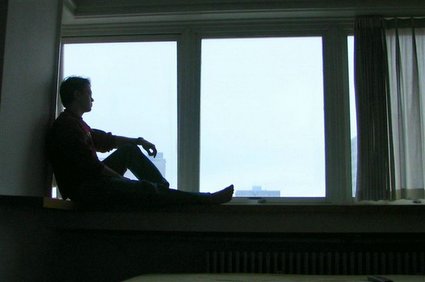Back after a long hiatus. Blame it on the increasing workload or my procrastination. Apologies for not being regular. OK.... coming up some pics from my trip to Copenhagen recently. If u remember I have already covered Copenhagen in two posts earlier (Copenhagen I and Copenhagen II). Having seen most of Copenhagen city I decided to go to the outskirts and discover some of the beautiful sites surrounding this city. So off we begin on our journey.
I don’t know if it happens only with me but the sky was again overcast and slight drizzling had occurred that day making it a bit unfortunate but overall it was still very enjoyable. The ride till the castle was marked by some beautiful spots here n there.
First stop Kronborg Slot(
slot=castle). It is is situated near the town of Helsingør. This is the Øresund region and the water body seperating Denmark and Sweden is the narrowest here, merely 4km wide. You might associate the region with the world famous
Øresundsbron (Oresund Bridge)
This was an strategically located castle in those days when dues were collected from all vessels passing by. It also enjoys being a UNESCO World Heritage Site. Kronborg acquired its current name in 1585 when it was rebuilt by King Frederick II into a magnificent renaissance castle, unique in its appearance and size throughout Europe.
Kronborg during its times was considered the strongest fortress in Europe. From 1739 until the mid- 19th century, it was used as a slave prison. The inmates were guarded by the soldiers in the castle. From 1785 to 1922, the Castle was completely under military administration. During this period, a number of renovations were completed.
The castle had been invaded and conquered by the Swedes in 1658. The hostility remains no longer but the canons are still pointing towards Sweden.
However the most important point about Kronborg is that it was the setting for much of William Shakespeare's famous creation
The Tragedy of Hamlet, Prince of Denmark which is arguably the most popular of Shakespeare's plays. It is def the longest play and from which are derieved the famous words “
To be or not to be”.
Kronborg is also the resting ground for the Danish mythological character
Holger Danske (Ogier the Dane). According to folklore the statue will come alive when Denmark is in great danger, and Holger Danske will save the country.
Next stop Fredensborg Palace. It is the Danish Royal Family's spring and autumn residence. The palace was built in 1720-1726 and is one of the most used of the Royal Family’s residences. Didn’t spend much time there but was able to catch the change of guard.
Next stop - Frederiksborg Palace in Hillerød, was built as a royal residence for King Christian IV, and is now known as The Museum of National History. It is the largest Renaissance palace in Scandinavia. The oldest parts of the palace date back to 1560, and were built by King Frederick II, after whom the palace is named. Most of the current palace, however, was built from 1602 to 1620 by Christian IV.
In 1850s, the palace was again used as a residence by King Frederick VII. During the night of December 16-17, 1859, while he was in residence, a fire destroyed a large part of the main palace's interior. Reconstruction was funded by public subscription, with large contributions from the King, state and the prominent philanthropist J. C. Jacobsen of Carlsberg Brewery, who also provided funds to establish The Museum of National History that now occupies Frederiksborg.
Prince Joachim (younger brother of the Crown Prince) and Princess Alexandra were married in the Palace Church also known as Chapel of orders. Various Coats of Arms adorn the walls of the palace church and the spiral staircase that leads you to the top of the four storey building.










